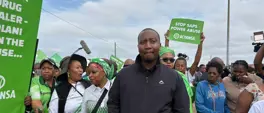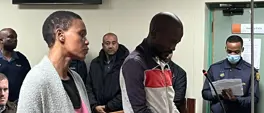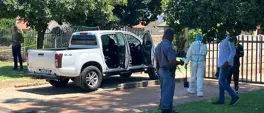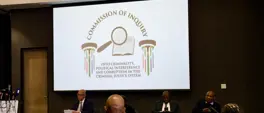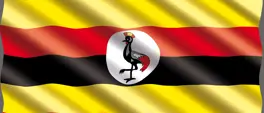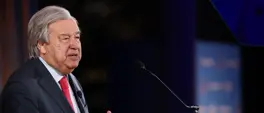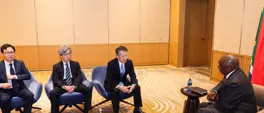Kenya drops terror charge against prominent activist
AFP
21 July 2025 | 17:27The east African country has seen a wave of deadly protests against President William Ruto and police brutality that have left dozens dead and thousands of businesses destroyed.
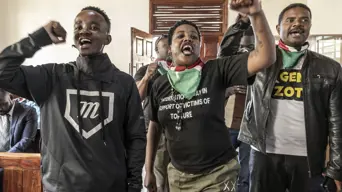
Kenya human rights activists chant anti-government slogans as activist Boniface Mwangi appeared before the Kahawa law court in Nairobi on 21 July 2025. Picture: SIMON MAINA/AFP
NAIROBI, KENYA - Kenya dropped terror charges against prominent activist Boniface Mwangi on Monday, following widespread condemnation, hitting him with a lesser charge of unlawful possession of ammunition.
The east African country has seen a wave of deadly protests against President William Ruto and police brutality that have left dozens dead and thousands of businesses destroyed.
Rights groups have criticised the government's heavy-handed response, including the recent use of terrorism charges against protesters.
Mwangi was detained on Saturday and accused by the Directorate of Criminal Investigations of the "facilitation of terrorist acts", which he denied, declaring in an image on X: "I am not a terrorist".
He appeared in a Nairobi court on Monday chanting "Ruto Must Go".
His charge sheet, seen by AFP, accused him of "possession of noxious substances to wit three teargas cannisters without lawful authority", as well as a single round of blank ammunition.
He pleaded not guilty, denying all charges, and was released on a one-million-shilling (around $7,000) personal bond.
"The truth is our president is scared of young people, because young people are organising by themselves, they are going to the streets, they are demanding better," Mwangi told supporters and journalists outside the court.
"Our president thinks people are being paid to go to the streets, and they think I am the financer.
"People hate Ruto for free," he said.
'ABANDON THIS APPROACH'
A coalition of rights groups welcomed the court's decision to drop the terrorism charges, but said they remained "deeply concerned" by its use "in more than 100 other cases".
The coalition urged the authorities to "abandon this dangerous approach to managing public dissent".
Last week, interior minister Kipchumba Murkomen said that 71 people were facing charges related to acts of terrorism following the recent violent protests.
Responding to the criticism, the Office of the Director of Public Prosecutions said the charges should be "understood within the framework of established legal thresholds and national security imperatives rather than interpreted as efforts to suppress legitimate political expression".
Mwangi's detention over the weekend triggered significant online condemnation under the hashtag #FreeBonifaceMwangi.
The search warrant police used to raid his home and office accused the campaigner of paying "goons" to stoke unrest at protests last month.
Mwangi has been arrested multiple times in Kenya.
He was also detained in May in neighbouring Tanzania, where he was attending the treason trial of opposition leader Tundu Lissu.
Mwangi and Ugandan activist Agather Atuhaire say they were tortured and sexually abused while in the custody of Tanzanian police before being returned to their respective countries.
The pair brought a case against the Kenyan, Tanzanian and Ugandan governments to the East African Court of Justice last week.
Mass protests initially broke out in Kenya in June 2024 over tax rises, and reignited last month over police violence and illegal detentions.
Rights groups say more than 100 people have been killed by police since the protests began last year.
Get the whole picture 💡
Take a look at the topic timeline for all related articles.




